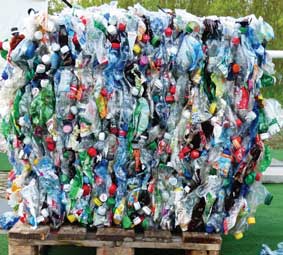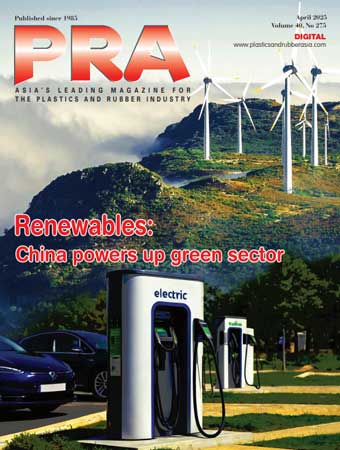Singapore to launch plastic passport for tracking recycling

With governments seeking ways to make plastic recycling work at scale, Singapore is taking the bull by its horns in collaboration with SMX, which has pioneered "physical to digital" supply chain solutions, and governmental R&D agency ASTAR, by building what it says is “the world's first country-backed plastic passport program”
This partnership combines SMX's chemical molecular marking technology, patented reader and blockchain-based traceability platform with ASTAR's digital, chemical spectroscopic detection and profiling research capabilities, for a system that permanently marks plastics at the molecular level, creating a tamperresistant digital identity that follows materials from manufacturing through recycling.
Policymakers set bold targets, global brands commit billions, and environmental advocates press for accountability, but the system has failed with recycling frameworks designed too narrowly, focusing on plastics like PET and rPET food-grade packaging while leaving out industrial polymers, automotive resins, textiles, and electronics. The result is a loop that could never fully close.
Hence, Singapore intends to do that with SMX's technology. The country generates about 957,000 tonnes/year of plastic waste, with 94% of waste being incinerated, and only 6% recycled. Phase I will cover more than 5,000 tonnes of postconsumer rigid and flexible plastics. Semi-industrial deployment begins in Q1 2026, followed by a full commercial showcase in Q2 2027, deliberately timed to align with Singapore's tightening extended producer responsibility (EPR) mandates, giving brands and producers a ready-made compliance pathway.
Once fully scaled, the system will support tagging and tracing capacity of more than 5,000 tonnes/year of plastics, and will be supported by a coalition of global and regional brands, retailers, resin producers, converters, and recyclers.
But it does not stop with tracking as every kg of SMX verified recycled plastic can also be paired with a Plastic Cycle Token, or PCT.
This instrument is backed one-to-one by the molecular marker and its verified audit trail, transforming recycled output into a transparent and tradeable asset. Unlike traditional carbon credits, which have struggled with opacity and credibility, the PCT is built to be measurable, auditable, and economically useful. It allows recyclers to monetise verified output, brands to hedge compliance risks, and investors to treat recycling as a new class of commodity.
FMCG companies, electronics suppliers, and automotive manufacturers across Asia are writing minimum post-consumer resin thresholds into procurement scorecards. Verified PCR already commands a 5% to 15% premium over virgin polymer in regulated sectors, and that premium is expected to widen as EPR schemes spread across Asia. With compliance costs rising and reputational risks looming, companies no longer see traceability as optional.
Meanwhile, the system may stretch beyond Singapore and by embedding chemical molecular "barcodes" in every pellet and logging each hand-off on blockchain, the partners aim to lift regional recycling rates by more than 30% and halve landfill or ash-fill volumes by 2030.
When replicated across ASEAN, the same architecture unlocks an addressable market of S$4.2 billion a year in certified recycled material and platform fees, thereby turning waste into a bankable commodity.
(PRA)SUBSCRIBE to Get the Latest Updates from PRA Click Here»










